Our 10 Best Education Articles in November: Intensifying School Politics, Rising Parent Activism, Districts Advancing Innovations Around Career Training & More

Get stories like these delivered straight to your inbox. Sign up for The 74 Newsletter
From the ways education influenced pivotal off-year elections to rising parent activism surrounding school boards and curriculum to districts innovating with new approaches to career training in hopes of re-engaging disconnected students, November was a busy month for local education coverage with national implications.
Here were our ten most read and shared articles this month on the nation’s students and schools:
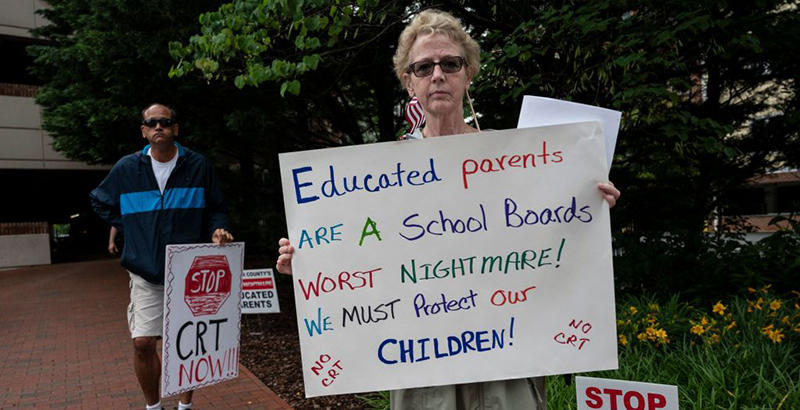
Skyrocketing School Board Recalls Offer Window into Year of Bitter Education Politics
EDlection: Public dissatisfaction with school boards has been building throughout 2021 as American politics careens from one K-12 controversy to the next: the pace of reopening schools, proposals to bar trans athletes from youth sports, “critical race theory” and mask mandates. Throughout, Americans have become increasingly willing to resort to the seldom-used practice of recalling school board members as a way of forcing change. According to the nonpartisan elections site Ballotpedia, 84 recall attempts targeting over 200 board members have been initiated so far in 2021, a huge upsurge over the typical year. And while the efforts have typically fallen short, they gained momentum in two large and nationally prominent districts. One is Loudoun County, Virginia, where parents began to revolt last year against COVID mitigation measures and perceived excesses in the school board’s equity initiatives. The other is San Francisco, where anger grew as pandemic-related school closures dominated national headlines. “The school board is maybe the most obvious candidate for a recall in this situation because their impact is very clear: The schools are shut down, or there are masking requirements, so the [effect] is right there,” said political analyst Joshua Spivak. Read Kevin Mahnken’s full report.
—November Recalls: The two latest school board recall efforts fell short on Election Night (Read more)

Lone Star Parent Power: How One of the Nation’s Toughest Anti-Critical Race Theory Laws Emboldened Angry Texas Parents Demanding Book Banning, Educator Firings
Parent Activism: Laws forbidding the teaching of critical race theory in Texas have emboldened parents like Mary Lowe and members of her local Fort Worth chapter of Moms for Liberty, a right-leaning national organization. The pandemic gave Lowe and her members a window into what their kids were learning about racism and sexuality — and they didn’t like it. “Honestly, it’s disgusting,” said Lowe, whose members show up at school board meetings to make their concerns heard. The new laws have gotten parents attention and results — sometimes through intimidation and threats. A few quick examples: A suburban Dallas principal accused of promoting critical race theory was put on leave with an eye toward not bringing him back. At least one North Austin teacher packed away her classroom library to avoid controversy. For school board members, the meetings have become “terrifying,” said Leander school board member Gloria Gonzales-Dholakia. “There are people there with utility knives on their belts, they’ll shout at me, scream at me that I’m a racist. They’ll call me a communist, I’m a ‘Marxist,’ I’m a ‘traitor to the country,’ I’m an ‘enemy of the state.’” Andrea Zelinski has the story.
Fueled by Grants, States Bet Innovative Career Training Programs Will Lure Disengaged Youth Back to School After COVID — Starting in Middle School
Career Readiness: Even as it threw the economy into shambles, costing millions of mostly low-skilled, low-wage workers their jobs, the pandemic also rendered high school an abstraction to countless teens who, faced with unprecedented stresses, disappeared from classes. As vaccines arrived and schools and workplaces are reopening for in-person activity, civic and educational leaders are left with twin conundra: How to re-engage displaced workers and students at a moment when both groups are more disaffected than ever? A group of philanthropic leaders, state and school system officials and workforce policy gurus believe they have at least a partial answer: Bet big on the expansion of the most promising career technical education programs in communities that were poised, pre-COVID, to try new ways of using cutting-edge job-based learning to make the rest of school more relevant and, by extension, students more likely to buckle down. Beth Hawkins talked to backers to find out why this might be job-based learning’s golden moment. Read our full report.
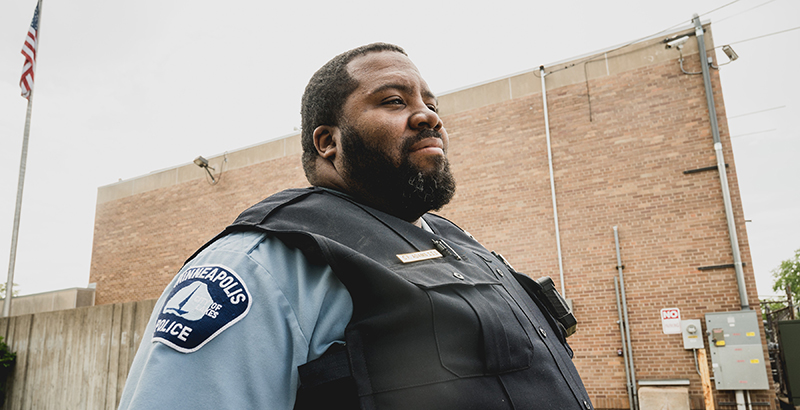
Exclusive: As Minneapolis Weighs Police Dept’s Fate, Records Show School Cops Had Lengthy History of Discipline, Civil Rights Complaints
Investigation: After a 2007 shooting outside a Minneapolis high school, a police officer with a national reputation pressured prosecutors to go easy on a school security guard who drove off with the guns and was arrested at a nearby gas station. Another was accused of pounding in a man’s face for littering. Records suggest a third officer had a tendency to respond violently when under stress. He was assigned as a school resource officer a year after a superior officer warned investigators he could “completely lose control of everything and harm himself, other officers or the public.” The incidents are among dozens of allegations and disciplinary findings — including police brutality, racial discrimination and domestic violence — against cops recently stationed inside Minneapolis public schools. After George Floyd was murdered in 2020, the Minneapolis school board ended its ties with the police department. Misconduct records and court files obtained by The 74 reveal a lengthy list of allegations and disciplinary findings against officers previously stationed in district schools — many alleging violence on the part of police. The records raise new questions about how the officers, half of whom remain on the force, wound up in schools in the first place. Minneapolis voters will decide Nov. 2 on a ballot measure that would eliminate a police department that’s long been accused of sweeping officer misconduct under the rug and replace it with a public safety division focused on a “comprehensive public health approach.” Read Mark Keierleber’s latest investigation here.
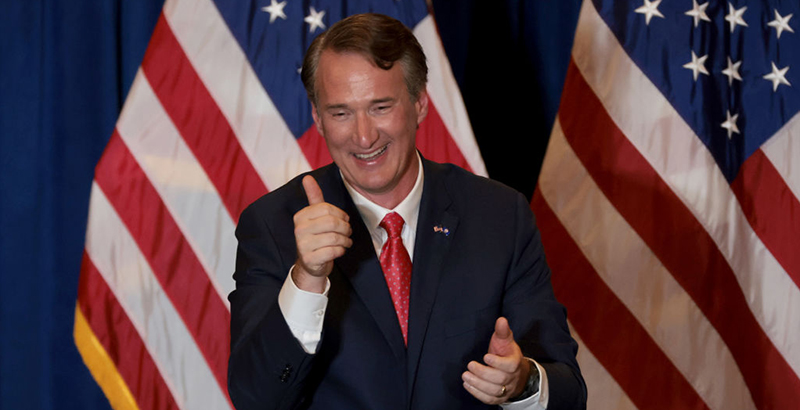
Will the Tea Party of 2022 Emerge from the Debate over Schools? Virginia Election Offers GOP Template for Midterms
Analysis: It will take weeks for number-crunchers in both parties to pull apart meaningful conclusions from this month’s gubernatorial elections in Virginia and New Jersey. But the races — especially in Virginia, where a well-liked Democrat was denied a second term in a state that Joe Biden won by 10 points last year — have made a few things clear. One is that education, an issue that voters have overwhelmingly trusted Democrats to manage in years past, could be a major vulnerability for the party as the 2022 midterms approach. The other is that, with the midterms now less than a year away, both parties have significant incentives to seize the initiative on K-12 schools. The GOP, which appears to have harnessed public outrage over COVID-related closures and school equity initiatives, has already announced plans to make a national education pitch with a proposed “parents’ bill of rights,” and polling indicates that their base hasn’t been this animated about the state of schools in recent memory. “In many ways, the critical race theory debate of 2021 is just the latest version of the death panel conversation from Obamacare, or the Willie Horton story of 1988,” political scientist Stephen Farnsworth told The 74’s Kevin Mahnken. “The question is whether this can be weaponized to benefit Republicans.” Read our full analysis.
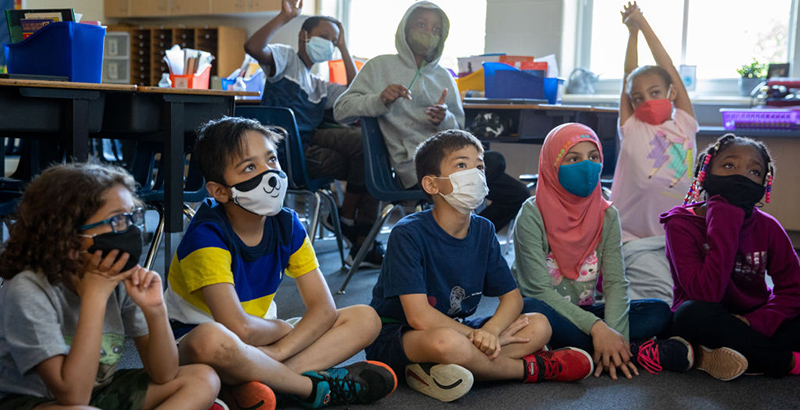
The COVID Crisis Cracked Our Education System. A New Reform Coalition Must Come Together to Fix It in the Interest of Children
Commentary: Anyone who cares about kids must rejoice over their being back in school with their peers. But, writes contributor Robin Lake, that should not blind us to the harsh truths we have learned about American public education. A rigid system designed for sameness cracked under the pressure of a crisis. People were rightly outraged that some students did not have access to Wi-Fi and portable devices. But where was the outrage over unequal access to technology before the pandemic struck? Why were people not furious over the decades of research that shows historically marginalized students are taught by less effective teachers? Or the large and persistent gaps in academic outcomes by race and income? It is time for a new, broader reform coalition made up of all those who saw things in the American education system during the pandemic that they cannot unsee. Education supporters from all corners must come together to align, strategize and win legislative battles in the interest of children. Time is wasting for this generation of students, and history will repeat itself for the next generation if we do not act.
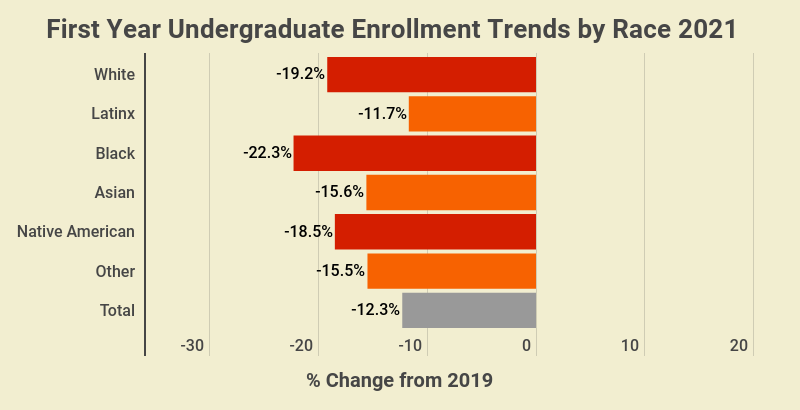
‘No Signs of Recovery’: 5 Alarming New Undergraduate Enrollment Numbers
Higher Education: Early fall undergraduate enrollment data suggest “no signs of recovery” after the worst declines in a decade, according to the National Student Clearinghouse Research Center — and public universities historically serving low-income students of color are hit hardest. Numbers continue to decline nationwide, now 6.5 percent below 2019 levels. First-year classes at community colleges are over 20 percent smaller than before the pandemic, while only elite, selective institutions are rebounding. Twenty-two percent fewer Black first-year undergraduates are enrolled this year, the biggest decline of any ethnic/racial group since the pandemic began. Some 8.4 million students and about half of higher education institutions are reflected in the National Student Clearinghouse’s report, which includes data through Sept. 23. Read Marianna McMurdock’s full report.
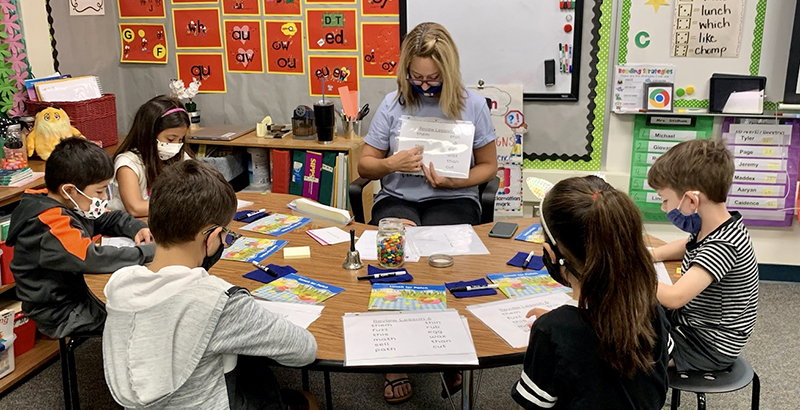
California Aims to Come From Behind in Making Sure Children Learn to Read, But Some See New Push as Political
Early Literacy: A state task force focused on getting all California third-graders to read by 2026 and new legislation aimed at strengthening teaching candidates’ skills in early literacy are among the myriad initiatives currently aimed at reducing racial achievement gaps in reading. Advocates say it’s about time, with 37 percent of the state’s fourth-graders below the basic level on federal reading tests and districts struggling to teach disadvantaged Latino students — a large segment of the state’s K-12 population — to read. Some, though, say the approach is too scattered in a state the size of California. “Where’s the coherence and the coordination of those efforts?” asked Stephanie Gregson, a former state official who now works with the nonprofit California Collaborative for Educational Excellence. And others see the emphasis on reading as a political strategy for Superintendent Tony Thurmond, who faces re-election next year. But district leaders say the data is enough of an impetus to take action. “We aren’t chasing a statement from Secretary Thurmond,” Palo Alto schools Superintendent Don Austin told The 74’s Linda Jacobson. “We identified the issue, put action steps in place, and plan to see what happens if a district can attack an issue with laser focus.” Read our full report.
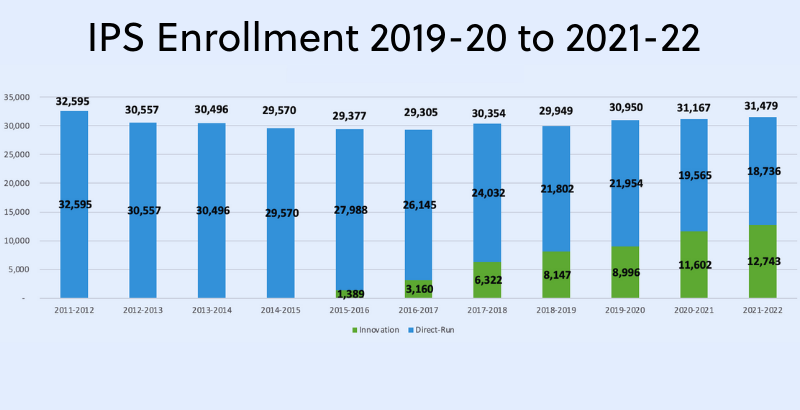
Indianapolis’ Innovation Network Schools See 42 Percent Jump in Enrollment During Pandemic
Enrollment: As school systems around the country confront a second consecutive year of unprecedented student enrollment losses, leaders of Indianapolis Public Schools’ Innovation Network might be forgiven for taking a victory lap. Enrollment in the district’s autonomous schools is up nearly 42 percent since the start of the pandemic, reaching its highest level in a decade. Backers of the innovation experiment, which enables the traditional district to keep a number of charter school families for purposes of funding and state accountability, note that the new schools’ growth is larger than the drop in the number of students attending traditional, district-run schools. Beth Hawkins has a quick look at the numbers.
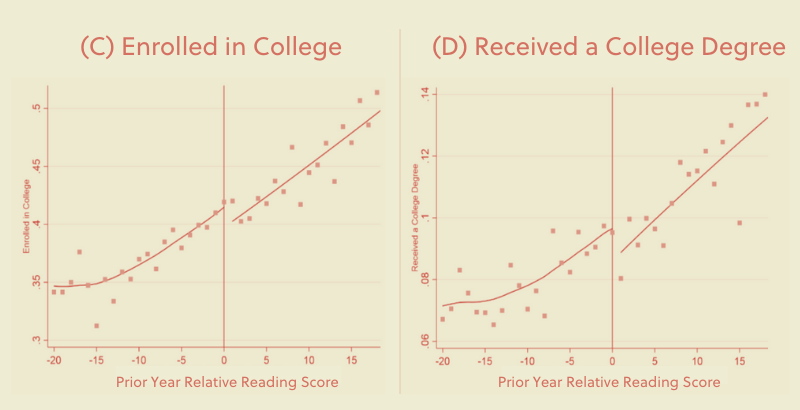
New Study Shows Reading Remediation in Middle School Led More Students to Attend College and Earn Degrees
Learning Recovery: Postsecondary remediation has gotten a bad name, and for good reason. Students who begin college in catch-up classes pay billions of dollars each year to learn content they should have mastered in high school, and a huge number drop out due to their stalled progress. But new research indicates that remediation may have its place earlier in students’ academic careers. According to the study, struggling middle schoolers in Florida who were assigned to a double courseload in English — a remedial class and a concurrent, grade-level class — saw significant benefits on their state test scores. Those faded over time, but the same students were later more likely to enroll in college, persist past their first year and eventually earn a two- or four-year degree. Kevin Mahnken reports.
Go Deeper: Get essential education news and commentary delivered straight to your inbox. Sign up here for The 74’s daily newsletter.
Get stories like these delivered straight to your inbox. Sign up for The 74 Newsletter

